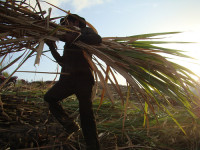Three Key Trends For Registrations in Latin America

Karla Pires Gobetti, Latin America registration manager for Syngenta, highlighted three key trends in Latin American crop protection registration at the Farm Chemicals International Trade Summit in Miami. Gobetti’s presentation was part of the Plenary Session on August 7.
- Complexity of the registration process – Gobetti says crop protection companies with Latin American operations have seen increased demand for information, new requests and new criteria, including cutoff criteria in Brazil to approve a registration. Argentina and Brazil remain mired in bureaucracy at the national level, but state-wide registrations are becoming more problematic in Brazil. Gobetti mentioned a recent issue in which Brazil’s Rio Grande do Sul state is forbidding new phenol-containing formulations. Even if national law is established, states can restrict use. “It is a difficult scenario for innovation today at Syngenta, because we have to face all of those issues, and we have to really know the molecule’s chances for registration,” she says. “The registration timelines in Brazil can take up to three to four years, and we have limited infrastructure and resources inside the government.”
- International tolerances as trade barriers – As crop exporters, Latin American regulatory bodies face increasing difficulties with being able to approve registrations. “We have a huge problem in Chile, because they export grapes and stone fruits, so they must have the tolerance established in the country they are exporting – they cannot have residues exceeding the limits. New regulations may appear, so this may facilitate from one side and complicate from the other,” Gobetti says. She explained that more progress is needed to train authorities on how to deal with tolerances, residue trials and international harmonization. Some issues, such as crop groupings, have to be established deeper in the future to avoid certain crops being outright forbidden, she says.
- Growing public health and environmental concerns – The debate on agrochemicals, stewardship and organic agriculture is strengthening, particularly inside the Brazilian authorities, Gobetti says, which is resulting in more pesticide restrictions and a trend toward banning especially at the state level – and this comes on top of wider political and social agendas. “Some authorities are just trying to avoid products based on the precautionary principle. Innovation is under threat in some countries due to this complexity,” she explains. “Science has to be present in all of these discussions.”

